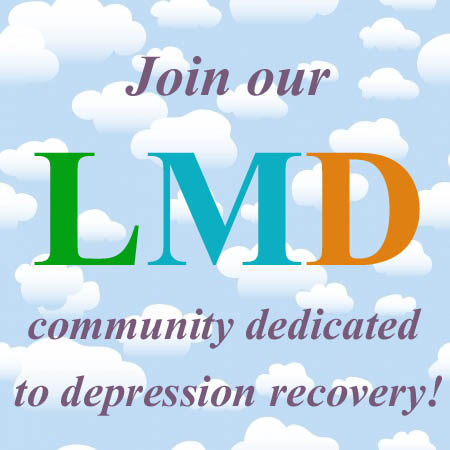 What is one of the most common things any psychiatrist or mental health professional asks during your first meeting? I think it’s ‘Tell me about your childhood’.
What is one of the most common things any psychiatrist or mental health professional asks during your first meeting? I think it’s ‘Tell me about your childhood’.
So, you tell your ‘story’ and it gets written down and filed in your notes. The next professional comes along and asks you to tell it again. Some of them will try to ‘dig in’ deeper and deeper to find a cause of your depression.
If you happened to have had a great childhood, you are likely to be taken on a historic dig of your past to find out the someone or something that could be to blame for you current dysfunctional life.
After a while, you get the ‘message’: it is very important to excavate your past and find valid reasons for your current depression.
Even if you have never sought any professional help with your depression, it’s likely you have caught this ‘who dun this to me’ bug.
What happens next? Your mind runs a search. It scans every bit of memory to find this ‘vital’ info that you can transfer into your ‘origins of my depression’ file. This file grows fast, as humans are very good at performing this task without conscious awareness. Your mind only let you know when it finds something.
So, after all this ‘work’, you might gain plenty of ‘evidence’ of who is responsible for your depression. Now what?
Exactly! Now what?
What do you do with this information? How useful is it? Is it a recipe for the cure or a recipe for disaster?
First of all, the retrieved information is never an accurate representation of the past reality. It’s your opinion on what has happened. Since then you have evolved, matured and gained experience. Are you ready to take a fresh look?
As a child I thought that my parents did not want me. One summer they sent me away to stay with my grandparents while they went on holiday with my elder sister. My 6-year-old brain came to an ‘I was abandoned’ conclusion and I suffered a lot. I’ve had attachment problems ever since.
My parents’ story was different. I was not able to travel. They were driving thousands of miles each way and, as I used to get extremely car sick, this trip would have been a total disaster for everyone if I was with them. They left me with people I absolutely adored. They sent me postcards every few days (my grandparents did not have a telephone). They brought me back lots of presents and photos. So, blaming them for my attachment problems due to my bad past interpretations would be rather inappropriate these days.
There are times, however, where there is no justification for what someone has done to us. Unfortunately, we have to live with that and learn to understand that we were too little, too naïve, too vulnerable at the time.
You can choose to hate back, carry this anger and rage wherever you go, possibly even seek revenge or try everything in your power to make them pay. Or you can choose to get better rather than bitter. Learn how to release it and let it go. There are lots of people around who will work with you on how to move on.
Whatever happened to you in your past, blaming someone will not heal your depression. It might give you: reasons for anger, self-pity, excuses for your addictions and an inability to take actions towards recovery. But it will not bring you a cure.
I am all for looking at the past if it helps to figure out what you can do, starting now. What beliefs did you acquire that prevent you from leading a great life today? What vital social skills are you missing and still have to learn? What experiences did you have that you can use today to help alleviate the suffering of others?
Your past belongs in the past. The hurts must be released and the knowledge must be used to heal, move on and help others.
Do you agree?
Stay strong, remain hopeful and seek inspiration!
Photo by: 123rf.com

Leave a Reply